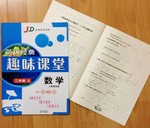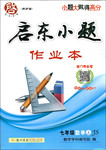题目内容
The telephone rang in the police station at Richmond, California, USA. “Police station? A train for Santa FE collide(碰撞)with a(n) 31 at the McDonald Street Crossing. Please go there at once, with an ambulance too. A man is badly injured,” said a(n) 32 voice of a young woman.
“Just a minute, we’ll come 33 . Please stay there and wait,” answered the policeman.
Within a minute, a police car and an ambulance 34 . Soon they got to the 35 , but only to 36 everything was fine. No collision, no 37 man.
“What a dirty trick!” said the policeman 38 . “We must find out that mischievous(恶作剧的) 39 and. . . ”
They had not been able to say anything about a punishment 40 they heard the whistle of a train: the train was nearing them quickly. All 41 a sudden, a truck appeared. It came fast towards them, too. 42 it was passing the crossing, it suddenly refused to move on. Right then and there, before the eyes of all the people present, the train collided with the truck heavily and struck it 43 meters away.
When Randolph Bruce, the driver was 44 out of the damaged truck, he was 45 hurt just 46 the young woman had foretold on the phone. As he was taken to the 47 in time, he was saved at last.
Later the policemen did 48 they could to find the woman who had telephoned them, but 49 .
It is 50 that a prophecy(预言)should coincide(巧合)with the fact so exactly.
31. A. ambulance B. truck C. car D. bus
32. A. anxious B. sweet C. gentle D. low
33. A. fast B. ahead C. soon D. later
34. A. went by B. set off C. got there D. came on
35. A. telephone B. street C. station D. crossing
36. A. feel B. find C. have D. tell
37. A. injured B. trapped C. frightened D. killed
38. A. happily B. excitedly C. angrily D. disappointedly
39. A. man B. policeman C. woman D. boy
40. A. until B. since C. while D. when
41. A. at B. of C. by D. for
42. A. When B. Where C. That D. Which
43. A. dozen B. dozens C. dozen of D. dozens of
44. A. raised B. helped C. pushed D. forced
45. A. slightly B. clearly C. hardly D. badly
46. A. as B. so C. before D. for
47. A. police station B. market C. hospital D. sidewalk
48. A. that B. which C. however D. whatever
49. A. delayed B. worked C. stopped D. failed
50. A. surprised B. surprising C. satisfied D. satisfying
31. B;32. A;33. C;34. B;35. D;36. B;37. A;38. C;39. C;40. D;41. B;42. A;43. D;44. B;45. D;46. A ;47. C;48. D;49. D;50. B
解析:
本文讲述的是一个关于预言与事实巧合的故事:一天警察局接到一个女士的报警电话说在一个铁路和公路的交叉路口发生了交通事故。一辆货车与火车相撞,有一个人受了重伤,要求警察带救护车去救援,当警察和救护车赶到报案人所说的事故地点时,他们看到那里一切正常,并没有事故发生。当警察们正为有人报假案而生气,发誓要查出报案人时,与报案人所说的相似的事故发生了……
31. B [解析]根据后文的a truck appeared可知选B。难度中等。
32. A [解析]因为是报案,所以报案人的声音应该很急切,故选A。难度中等。
33. C [解析]根据本句中的wait可以推断出选C。难度中等。
34. B [解析]根据后一句中的got to可知选B。难度较大。
35. D [解析]由前文的at McDonald Street Crossing可知选D。难度中等。
36. B [解析]此处所填词意思是:看到,发现。选B。难度较大。
37. A [解析]句意是:没有车祸,没有受伤者。选A。难度中等。
38. C [解析]根据后一句可知选C。本题较易。
39. C [解析]根据第一自然段的最后一句可知选C。难度中等。
40. D [解析]此处所填词是并列连词,表时间,意思是:就在这时,选D。难度较大。
41. B [解析]all of a sudden:突然地。难度中等。
42. A [解析]所填词引导时间状语从句,意思是:当……的时候,选A。难度中等。
43. D [解析]此处所填词表示不定量的概念,意思是:几(米),选D。难度中等。
44. B [解析]根据前文可知货车和火车相撞,货车被撞出去好几米,那么司机就是被困在车内,因此是“被人帮助拉出来”。故选B。难度中等。
45. D [解析]所填词修饰形容词hurt,意思是:严重地,厉害地。选D。本题易。
46. A [解析]引导方式状语从句,意思是:就像……一样,选A。难度较大。
47. C [解析]根据后文的save可以推断出选C。难度中等。
48. D [解析]引导宾语从句,在从句中作宾语,指物,意思是:任何事。选D。难度较大。
[解析]根据连词but可知选D。难度较大。
50. B [解析]所填词作表语,句子主语是that从句,指物,故选B。难度中等。

 黄冈经典趣味课堂系列答案
黄冈经典趣味课堂系列答案 启东小题作业本系列答案
启东小题作业本系列答案